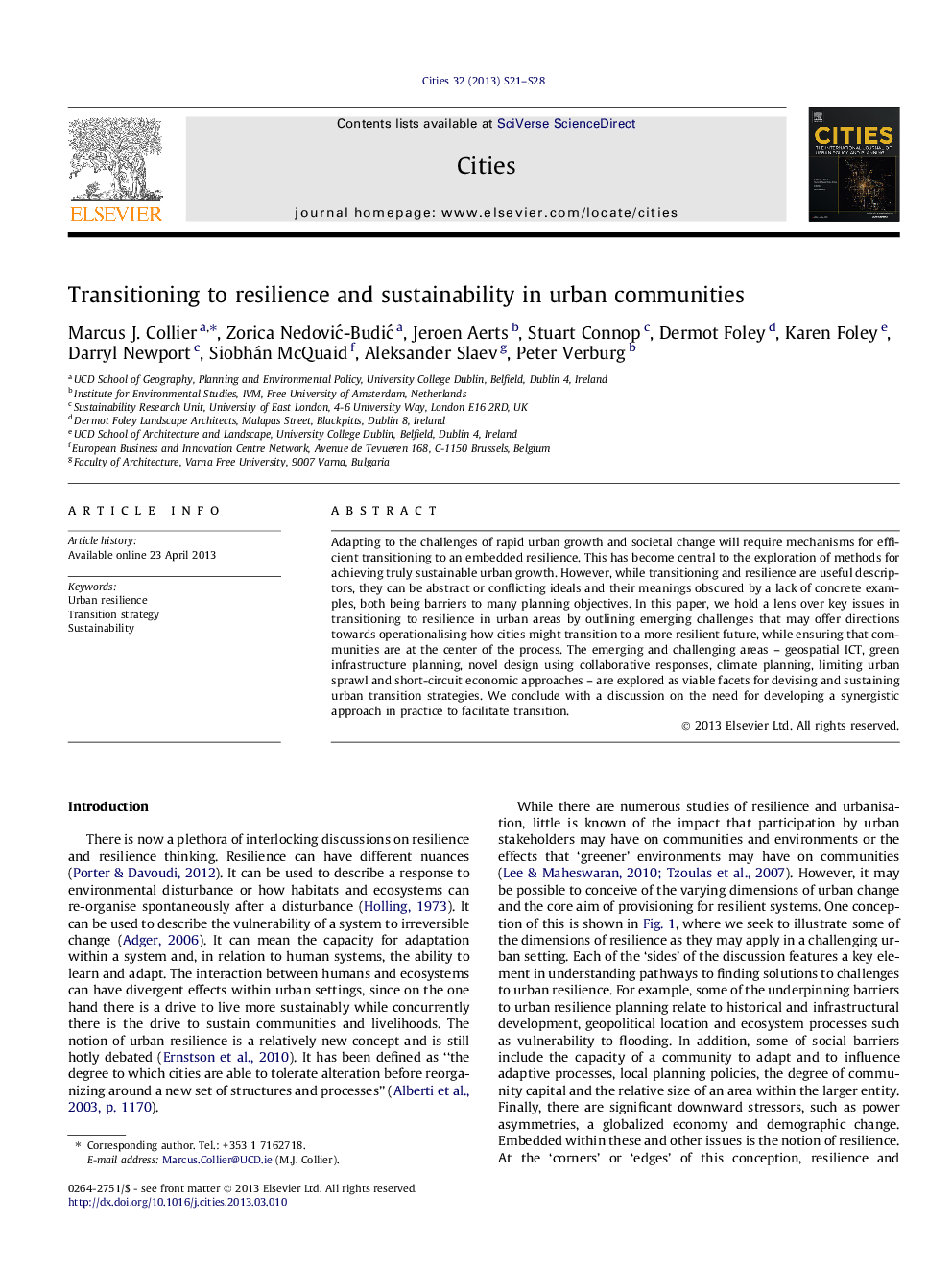| Article ID | Journal | Published Year | Pages | File Type |
|---|---|---|---|---|
| 10489875 | Cities | 2013 | 8 Pages |
Abstract
Adapting to the challenges of rapid urban growth and societal change will require mechanisms for efficient transitioning to an embedded resilience. This has become central to the exploration of methods for achieving truly sustainable urban growth. However, while transitioning and resilience are useful descriptors, they can be abstract or conflicting ideals and their meanings obscured by a lack of concrete examples, both being barriers to many planning objectives. In this paper, we hold a lens over key issues in transitioning to resilience in urban areas by outlining emerging challenges that may offer directions towards operationalising how cities might transition to a more resilient future, while ensuring that communities are at the center of the process. The emerging and challenging areas - geospatial ICT, green infrastructure planning, novel design using collaborative responses, climate planning, limiting urban sprawl and short-circuit economic approaches - are explored as viable facets for devising and sustaining urban transition strategies. We conclude with a discussion on the need for developing a synergistic approach in practice to facilitate transition.
Keywords
Related Topics
Social Sciences and Humanities
Business, Management and Accounting
Tourism, Leisure and Hospitality Management
Authors
Marcus J. Collier, Zorica NedoviÄ-BudiÄ, Jeroen Aerts, Stuart Connop, Dermot Foley, Karen Foley, Darryl Newport, Siobhán McQuaid, Aleksander Slaev, Peter Verburg,
